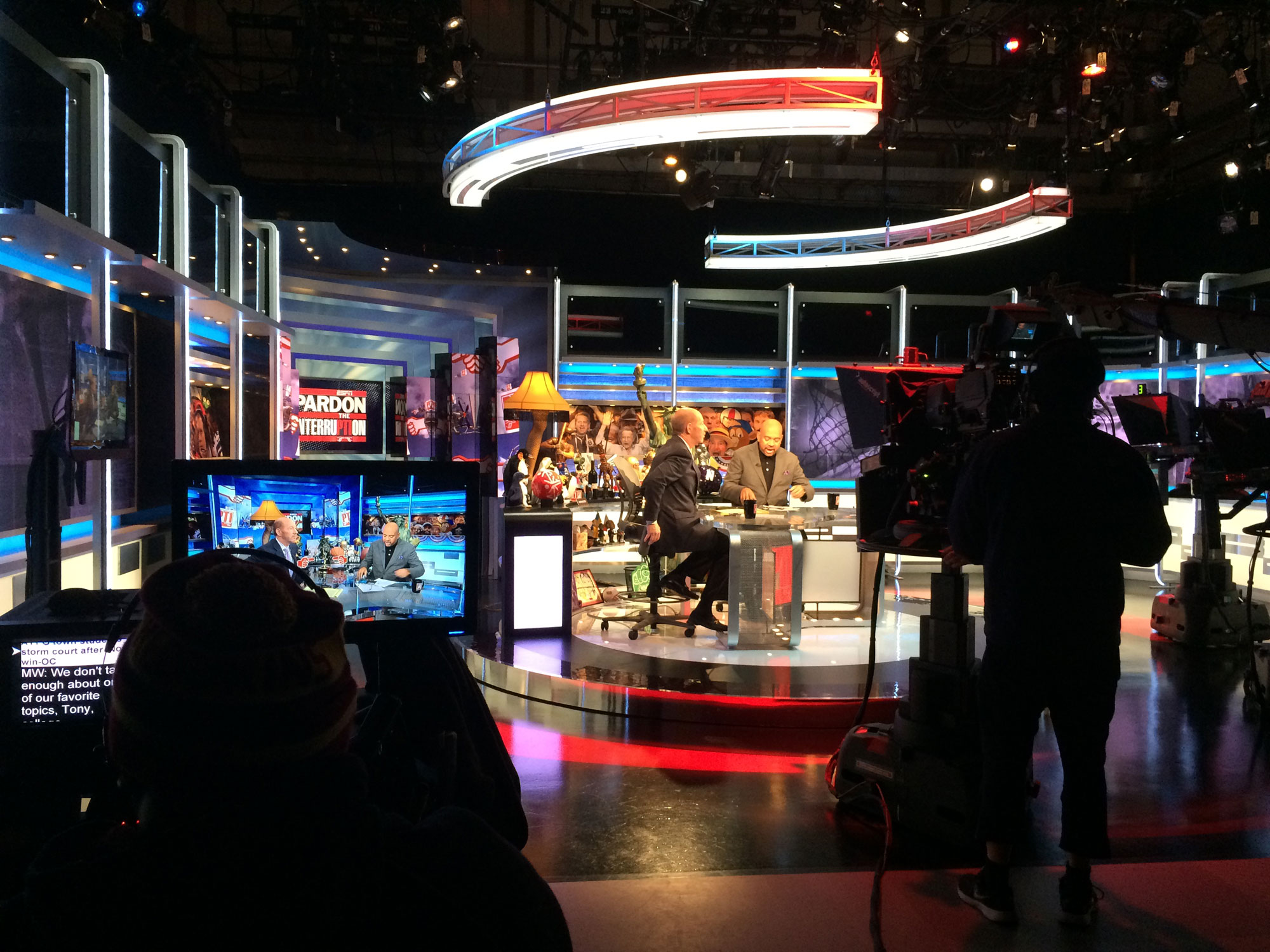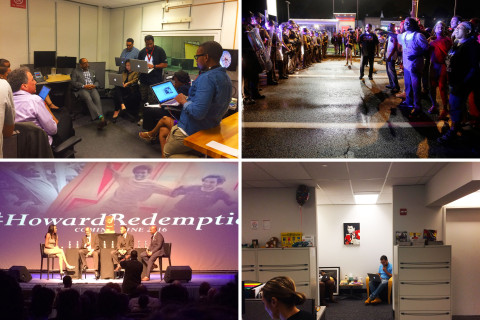WASHINGTON — If you’re a sports fan who has spent any measurable amount of time in Washington, you’ve probably noticed it. All across the ESPN network and its various arms, but especially on the flagship vehicle “SportsCenter,” there is talent with ties to Washington.
There are those who have been with the network seemingly forever like Brookeville, Maryland, native and Sherwood High School grad Scott Van Pelt, who wears his pride for both his home state and alma mater of Maryland loudly.
But there are other longtime, powerhouse personalities like Rachel Nichols (a Churchill High School grad and former Washington Post reporter) and Chris McKendry (who came to ESPN from WJLA).
More recently, reporters like WJLA’s Britt McHenry and WRC’s Dianna Russini have moved on to Bristol. And ESPN just announced the hiring of another NBC4 reporter and District native Tisha Thompson to work on its investigative “Outside the Lines” program and magazine style “E:60.”
Whether they were raised in D.C., cut their teeth professionally here, or both, the trend is undeniable.
You could chalk the reasoning up to sharing a coast and a time zone, making exposure to the watchful eyes of the talent department more likely. But those are all advantages that Philadelphia, New York and Boston share as well, without the same outsized influence. Could there be something else about either growing up or working here that better prepares sports media for the bright lights of Bristol?
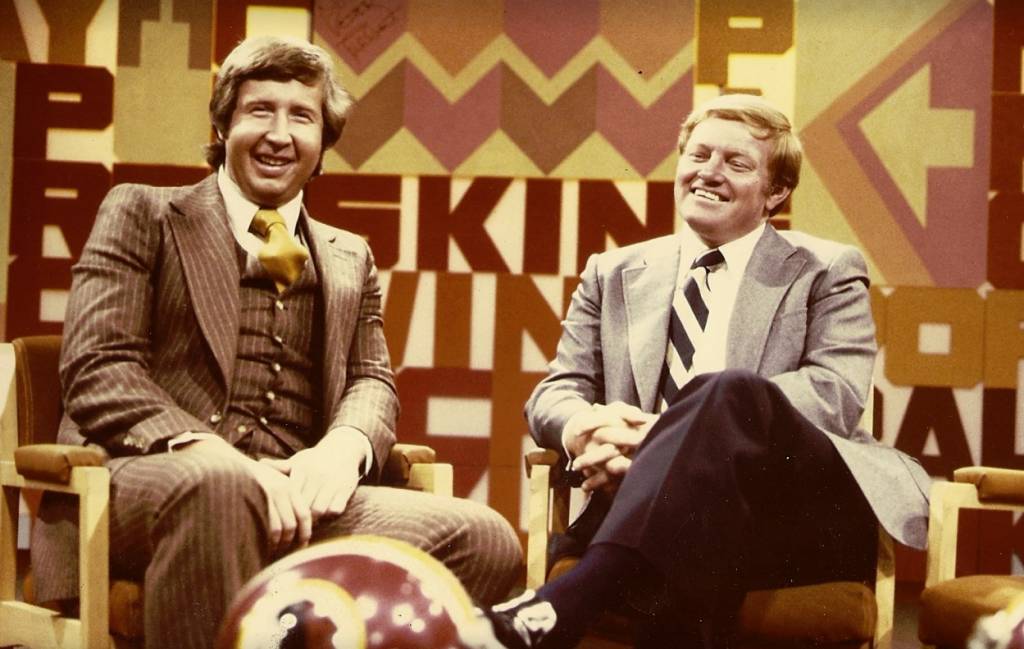
‘A connection that was different’
For all its overly quoted lines and general absurdity, the film “Anchorman” works for the universe within which it exists, a time when local newscasts were at the zenith of their influence. It embodies the era of American history when two men began to emerge as trendsetters in the world of sports broadcasting, both in Washington, laying the foundation for a wave of kids watching on television.
“When I was growing up, the local news was a really big deal here,” said Bram Weinstein, a Springbrook High School and American University grad who worked at ESPN from 2008-15 before returning to ESPN 980 in Washington. “And we were lucky. We had really great sports anchors. I recognize that now, but I didn’t know that then.”
Weinstein idolized one in particular, a former minor league pitcher-turned-broadcaster who redefined the sports anchor’s place in local television.
“I always really wanted to be this guy Glenn Brenner,” said Weinstein of the Philadelphian, hired in 1977 by what was, at the time, WTOP-TV and later became WUSA. “He was kind of doing it in the way that I think all of us wanted to do it that wasn’t uniform. He just had kind of a relatability and a shtick, and he was funny. There was a connection with him that was different even in those three, four minutes, whatever he had.”
At the recent Ripken Foundation Annual College Basketball Tip-Off event, Van Pelt cites the exact same influence. Lobbed a softball question about mentors, he says he never really had one, but considered Brenner the man he looked up to the most on a professional level.
Brenner’s willingness to make fun of anyone — especially himself — is evident in Van Pelt’s own often self-deprecating delivery on his new midnight “SportsCenter.”
“Look at me, man. What other cards to I have to play?” he joked when asked about his style. “I’m also confident enough that I don’t mind making fun of myself, particularly if we’re going to poke fun at others. There’s nothing that troubles me more than the person whose ego is such that they think they’re allowed to cast aspersions about how somebody played, but they’re above reproach. I mean, that’s comical to me. But it happens a lot in our business.”
Though that approach may cut against some of the predominantly puffed chested, alpha male stereotypes in the sports world, Van Pelt insists he’s simply being authentic.
“I’m talking to you the exact same way I talk to Aaron Rodgers — I’m just me,” he said. “And I think that helps put people in a very comfortable place where they’re willing to just have a conversation, because it’s not an inquisition.”
That style hearkens back to the golden age of D.C. sportscasters, who Czarniak watched while attending Centreville High School, before going off to James Madison.
“What I saw when I looked at them were these people who were so in control of what they did, were so well-liked,” she said. “And they were approachable. And that, to me, still is one of the core things that I think is really important as a broadcaster.”
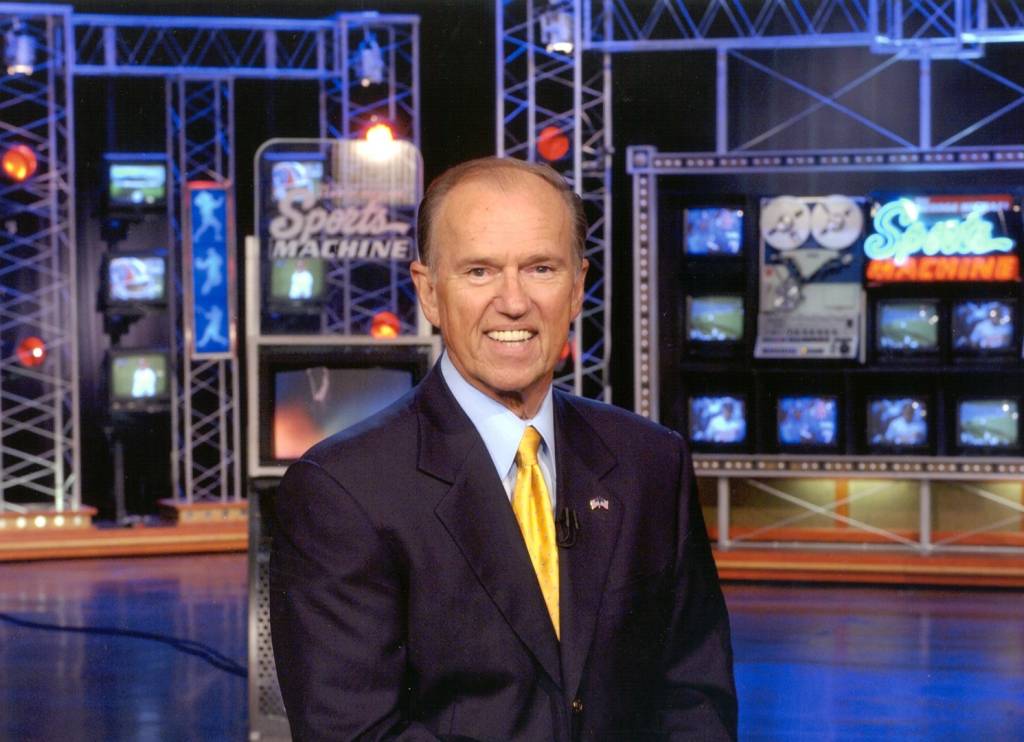
‘SportsCenter before SportsCenter existed’
Czarniak got a far more hands-on experience than simply watching the local anchors on television, though. She worked under George Michael, the technically masterful yin to Brenner’s freewheeling, charismatic yang, at WRC, which would become almost a farm team for ESPN. In addition to Czarniak, ESPN would bring on Hakem Dermish and Russini, and just announced the hire of Thompson earlier this week.
“Working for George, in that job, that in many ways is still the most fulfilling job I’ve ever had,” Czarniak said. “The D.C. experience completely shaped and molded me the most in my career so far.”
Weinstein never worked for WRC, but recognized from afar the incredible opportunity it offered.
“If you were going to get trained in a local department, that might have been the best local news department to be trained in, because he had a national presence,” he said. “They were trained by George Michael. He created SportsCenter before SportsCenter existed.”
Even those who didn’t grow up in D.C. felt the influence of The Sports Machine and the Brenner-Michael friendly rivalry. Growing up in New Jersey, Russini remembers watching Michael’s nationally syndicated show, which would come on late at night, after Saturday Night Live.
During her time in D.C., she became good friends with Jim Vance, who would regale her with stories about the behind-the-scenes beef between Brenner and Michael, but also of the legendary precision with which the latter ran his department, one which set the tone for a generation of future sports journalists.
Rob King was another Washington youngster, nearly the same age as Van Pelt, who grew up in the Brenner-Michael heyday.
You may not know King, but he’s arguably the most influential of any of the D.C. transplants in Bristol, where he serves as the Senior Vice President for SportsCenter and News. A son of two Howard graduates — including Pulitzer Prize-winning Washington Post columnist Colbert King — he didn’t think we would end up in sports media, but loved watching as a child.
“These were folks that you felt not only informed by, but genuinely entertained by,” King said. “That style — that very, very comfortable, genial style — really resonated with me.”
In addition to the local TV anchors, there was the sports section of The Washington Post, whose stable of sports writers included both Tony Kornheiser and Michael Wilbon.
“We were so lucky to have the people working here who we could follow,” Weinstein said. “Tony Kornheiser and Michael Wilbon were our columnists here. America knows who they are now. When there was no internet, we were the ones that got to read them every day. For local people like myself, I don’t think that I realized I was getting the education I was getting of doing it at that level by watching them.”
While the duo never actually migrated to the Mothership, they became some of the first with D.C. ties to make their mark at ESPN with “Pardon the Interruption,” which debuted in 2001. That’s the same year Van Pelt joined the network, having spent six years at The Golf Channel after breaking in with WTTG.
But that migration of talent has grown from a trickle to a steady flow over the past 10 years.
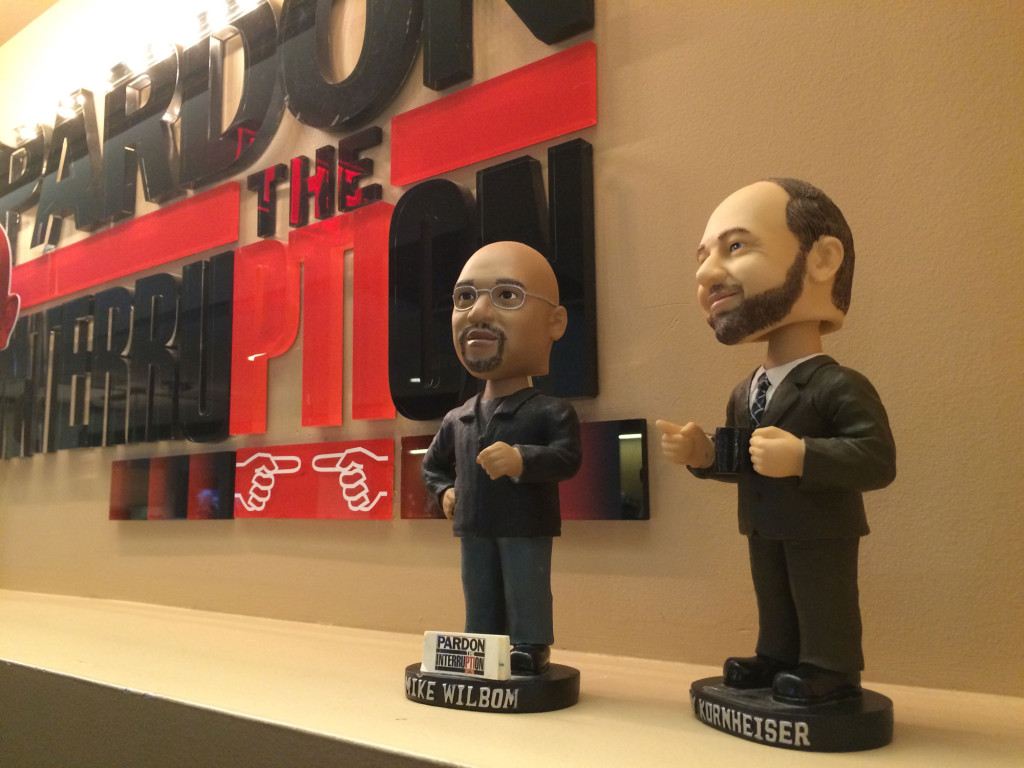
The pipeline
“We all noticed it,” said Sage Steele — who worked at Comcast SportsNet mid-Atlantic for six years before being hired at ESPN — of the D.C. influence in Bristol. “I got there in ’07, and it really seemed to increase after me.”
There’s nothing so extreme as a burgundy and gold water cooler in a corner, but the Washington ties run strong behind the cameras as well.
“D.C.’s very well represented in Bristol in terms of personnel, clearly,” said Sara Walsh, who was a sports anchor at WUSA for five years before joining ESPN in 2010. “And even behind the scenes, there are so many people there that have D.C. connections — whether they worked there, like I did, but didn’t grow up there, or whether they grew up there but didn’t work there.”
Walsh said longtime Washington safety DeAngelo Hall was recently on campus in Bristol and was blown away walking the halls by how many familiar faces he ran into. As for Walsh, she sensed she was in a strong market in D.C., but did not foresee the mass migration of talent.
“I thought that everyone was good, everyone was there for a reason,” she said. “I don’t think I had a sense that it would turn into this pipeline the way it has.”
Since Steele and Walsh, the network has added not only Czarniak, McHenry, Russini and Thompson, but also a number of Washington Post writers with the addition of The Undefeated, which launched earlier this year out of the same downtown ABC News building that houses “PTI.” In addition to being headed up by former Post managing editor Kevin Merida, longtime Washington writers like Jason Reid, Mike Wise and Clinton Yates made the jump as well.
“Who’s the one sitting in an office somewhere just plucking people out of D. C.?” Walsh asked. “Because someone is certainly doing that.”
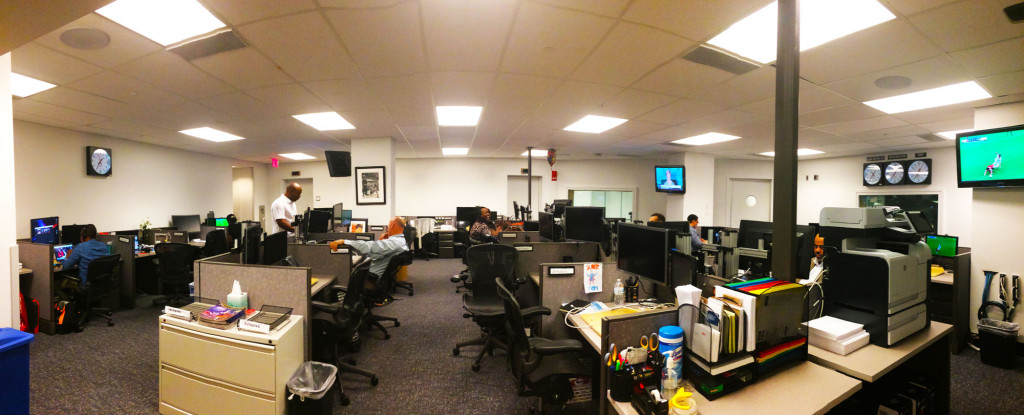
‘Barking at me for talent raiding’
“The first time I ever saw Lindsay Czarniak, she was on the cover of Washingtonian Magazine at my parents’ house,” King said.
Back in Washington, he often watches sports with his father and chats about the local sports scene. Another time when King was visiting, his dad was raving about how much he liked another local anchor. When he returned to Connecticut, he watched some clips and put a preliminary phone call in. One thing led to another, and pretty soon he heard from his father again, this time upset that ESPN was stealing away another local anchor.
“What’s this I hear about you hiring Dianna Russini?”
But King insisted his family living room isn’t the source of the express lane from Washington to Bristol.
“There’s this ongoing narrative about writers who’ve come to work at ESPN and on-air people who’ve come to work at ESPN, starting at the top with Michael Wilbon,” King said. “It’s an ongoing thing for us where (my dad is) barking at me for talent raiding. And a lot of this stuff I’m not responsible for, it just happens that people are really good, we’ve got people here who have an eye out for talent, and we’ve reached out and been fortunate enough to bring some folks in.”
Beyond the influence of the prior generation and an established track record of successful hires, is there something unique to the Washington market that makes those who matriculate through our local media outlets particularly good fits at ESPN?
“I don’t know why,” Weinstein said. “I think it’s a testament to the people who hire people around here that they know what they’re doing, because they’ve had a constant flow of really strong talent.”
“People ask me all the time, why do I think so many people from D.C. have been successful at ESPN,” Russini said. “And I think it’s because we had to handle so much in that market, and so many different types of stories. Non-sports related stories, whether it’s the Redskins name, quarterback controversy … It makes you feel like you’ve got a responsibility.”
Czarniak said she thinks the nature of the market raises the bar, helping prepare people for the pressure of a national job.
“For some reason, sometimes it does feel different,” she said. “Standards are high at stations all across the country, but it felt a little bit different to me.”
Van Pelt attributes it to a combination of factors, but is reticent to chalk it up to any one thing.
“Being good enough, being close enough, and being lucky enough, I think those things conspire,” he said. “There isn’t something in the water where they grow them better where we’re from.”
King’s analysis seems to hearken back to Michael and Brenner, to the mix of professionalism and personality that so many in this area grew up watching and were shaped by. Consciously or not, that influence has clearly left a lasting impression, one which is now leaving its own mark in Bristol.
“The only thing I could put my finger on would be that the folks who do sports in D.C. have to have the right mixture of expertise and empathy,” King said. “The D.C. teams really hold your heart in their hand…We’re in a passion business. We’re in the business of making sure fans feel like they’re in a safe place to go and be fans.”

